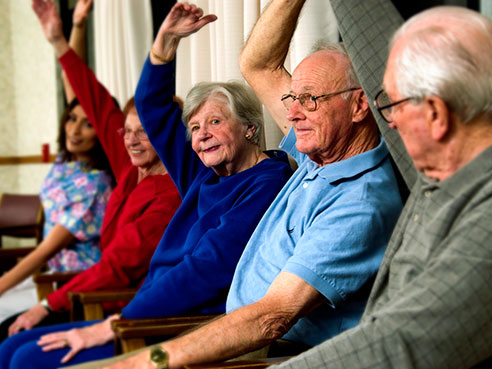Need more information? Contact us
The University of Alabama at Birmingham has been named one of the country’s six Nathan Shock Centers of Excellence in the Basic Biology of Aging by the National Institutes of Health’s National Institute on Aging.
 The prestigious award, which amounts to more than $2.5 million over a five-year period, will support the establishment of UAB’s Nathan Shock Center.
The prestigious award, which amounts to more than $2.5 million over a five-year period, will support the establishment of UAB’s Nathan Shock Center.
The grant is the result of a collaborative, campuswide effort including researchers in the College of Arts and Sciences, School of Health Professions, School of Medicine, and the School of Public Health.
At UAB, and at each of the other five Shock Center institutions, the grants will help foster leadership in the pursuit of basic research into the biology of aging through The Nathan Shock Centers’ services provided by specialized research cores, small startup grants, and the organization of meetings and symposia to highlight specific areas of research.
“This grant, which we were awarded over such eminent institutions as Yale and Stanford, establishes UAB as a national leader in basic aging research,” said Steven Austad, Ph.D., distinguished professor and chair of the UAB College of Arts and Sciences’ Department of Biology. “We hope to use this new funding as a springboard for establishing UAB as an epicenter of cutting-edge research aimed at enhancing and extending human health — something that we are in desperate need of as our population ages.”
Each Nathan Shock Center has specialized areas of research emphasis. UAB is specializing in understanding how energetics affects aging.
“Discovering how to extend the period of healthy life is something at which we are making great progress,” Austad said. “Getting this Shock Center should accelerate that progress. Aging is the No. 1 cause of death and disability in today’s world. We hope to help find answers that can relieve this enormous health problem.”